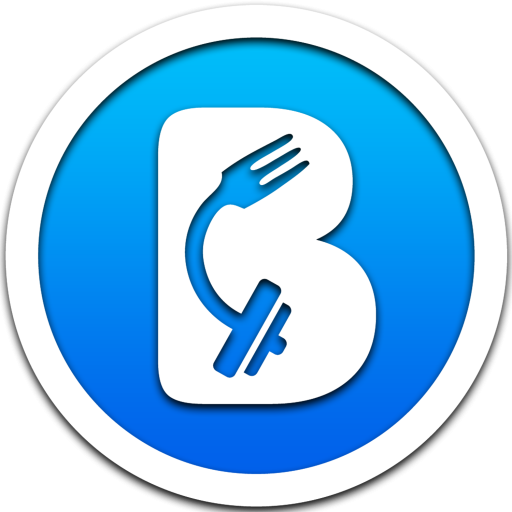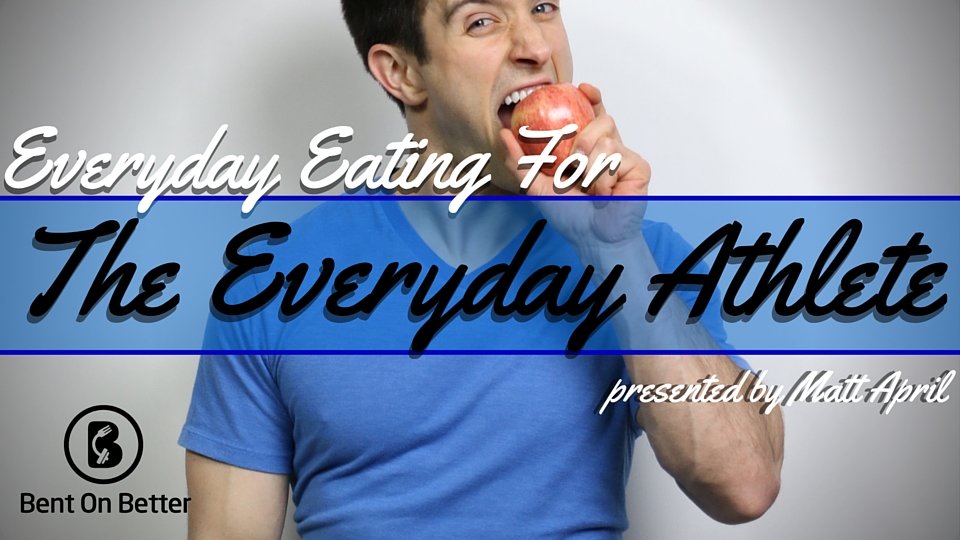Everyday Eating for the Everyday Athlete
Everyday Eating for the Everyday Athlete
My everyday eating tips for the everyday athlete will cover:
– Eating before exercise
– Eating during exercise
– Eating for recovery
Everyday Eating for the Everyday Athlete
Today I want to talk about everyday eating for the everyday athlete, the ordinary guy or gal who is determined to live a healthy life with regular exercise and healthy eating. This blog post isn’t just meant for the current athletes or the retired high school and collegiate athletes, this post is for everyone and anyone who works out on the regular. Do you fit this description? I bet you do…if you don’t, there is no need to get upset and stop reading, anyone can fit this description…it’s just a matter of making the decision to do it and then DO IT. 🙂
Below you will find the three most important eating times in your day: eating before exercise, eating during exercise, and eating for recovery.
Eating Before Exercise
Before I get into this section, if you haven’t already read my post or listened to my podcast all about carbohydrates, take a look/listen by clicking this link. I’m going to break each of these sections into quick, digestible (ha! Pun intended!) nuggets of content for you to use in your life.
– Consume a carbohydrate-rich snack or small meal before exercise to help fuel your muscle glycogen stores to their max potential.
– Consume a small amount of protein to help stabilize the carbs (protein is also a vital building block for muscles).
– Reach for something very low in fat and relatively low in fiber to ensure easy and fast digestion.
Some Food Ideas For Pre-workout Fuel (2-4 hours prior):
– Rolled oats + fruit + an egg
– Protein shake + fruit
– Tuna sandwich (on sprouted grains, like Ezekiel bread)
– Chicken breast + broccoli + quinoa
– Greek yogurt + fruit
– Low-fat cottage cheese + fruit
Ideas for 30-60 minutes before:
– Piece of fruit
– Sports drink or water
*If you can handle caffeine well – 8 oz black coffee + any of the aforementioned items*
Eating During Exercise
This can be a tricky one to handle.
For exercise bouts lasting more than one hour, it is recommended you you replace your carbohydrates in effort to help supply glucose to working muscles. The biggest problem for most athletes is a lack of carbohydrates is the lack of proper hydration (read more about the importance of water, here) and electrolytes.
What are electrolytes?
The main ones that are lost in sweat and need to be replenished are sodium and potassium.
As you sweat more, you lose more water, this can lead to fatigue and impaired performance. One of your best options for during exercise eating is going to be a small addition of your favorite sports drink to your water. Too much carbohydrates and electrolytes and not enough water, or just too much all together can lead to intestinal problems. My tip has always been to have a full bottle of water, take a few big sips or gulps, them replace the missing liquid with your favorite sports drink or pure coconut water.
Additionally, try to avoid any drinks that may slow the digestion (i.e. pulpy fruit drinks, drinks with high levels of high fructose corn syrup, etc.). You many consider eating a small amount of quickly digestible fruits during endurance events, and even a small portion of sports gels or sport beans (I do not use the products that are linked, these are just examples of what each item is).
My tips for eating during exercise: do what works best for you. If you’re unsure of how certain practices will work with you routines, implement them slowly and pay attention to how your body reacts. No one knows your body as well as you do, listen to it!
Eating For Recovery
The importance of eating after an exercise or athletic event or sporting event cannot be stressed enough. The goal is to replenish your muscle by providing them with carbohydrates for fuel and protein to aid in the repair of the damaged muscle tissue. If you have ever heard of the “window of gainz,” this is a real thing. Studies have shown that eating within 30 minutes of finishing a workout is crucial for muscle glycogen (muscle energy) replacement. Waiting even 2 hours can decrease muscle glycogen synthesis by 66%2! That means your muscles are not nearly getting as much fuel as they would if you ate within the first 30 minutes of completing a workout.
Recovery Food Ideas:
– Smoothie made with Greek yogurt and frozen berries (+ some water)
– Carbohydrate-Electrolyte sports drink + whole egg
– Banana + low fat milk + peanut butter
– Brown rice + lean steak + broccoli
– Rice + chicken breast + peas
So stay on your game and refuel yourself so you can perform well in future games! 😉
You’re a healthy guy or gal, and I know you value your health (keep reading my blog). But here’s the thing, I have to remind you that these tips are provided for your information and are not intended as medical advice. Please work with your health care professional to determine what’s right for you. Just remember, eating right starts with you.
[smart_track_player url=”http://traffic.libsyn.com/bentonbetter/Everyday_Eating_for_the_Everyday_Athlete.mp3″ title=”Everyday Eating for the Everyday Athlete” artist=”Bent On Better” image=”https://www.bentonbetter.com/wp-content/uploads/2015/06/HEALTHFITNESS.png” social=”true” social_twitter=”true” social_facebook=”true” social_gplus=”true” social_linkedin=”true” social_pinterest=”true” ]
Sign up for the Bent On Better newsletter and get my FREE guide to wellness, immediately!
Have you received my free guide for The 5 Most Helpful Wellness-Improving Apps? If not, make sure you click the button below to download the guide and join the Bent On Better newsletter where I share exclusive tips and insights ONLY with my subscribers.
Click Here to Get Your FREE Guide
Thanks for joining me again this week, I’m glad you decided to come back. If you’re new to the blog, welcome! Visit my Start Here page to get the low down on this whole Bent On Better thing.
If you have any questions you’d like addressed personally, feel free to email me at [email protected].
Lastly, don’t forget to subscribe to the show on iTunes to get automatic updates, available for both iOS and Android on Stitcher!
Cover photo by NAYR Photography
1. Clark, Micheal, Scott Lucett, and Rodney J. Corn. “Chapter 17/ Section 3.” NASM Essentials of Personal Fitness Training. Philadelphia: Wolters Kluwer Health/Lippincott Williams & Wilkins, 2008. 462-495. Print.
2. Clark, Micheal, Scott Lucett, and Rodney J. Corn. “Chapter 17/ Section 3.” NASM Essentials of Personal Fitness Training. Philadelphia: Wolters Kluwer Health/Lippincott Williams & Wilkins, 2008. 482. Print.

